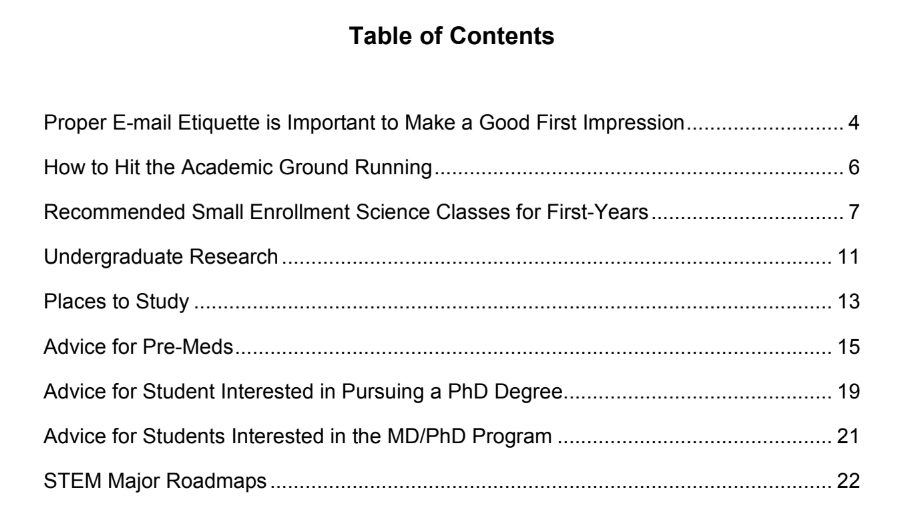
Sandy Chang
As first years flock to campus to embark on their bright college years, students will have a new tool at their disposal as they navigate college classes and academic planning.
Sandy Chang, associate dean for science and quantitative reasoning education, hoped to demystify this process for first-year students pursuing the sciences by creating a guide to STEM activities at Yale. The guide, accessible at the Science & Quantitative Reasoning website, outlines STEM academic resources and offers advice ranging from finding the right research laboratory to seeking out mentoring.
“I kept encountering many of the same questions regarding STEM resources at Yale. Students wanted to know where to find information on classes, research, going into graduate schools and Med schools, etc.” Chang wrote in an email to the News. “These info are readily available, but often found in diverse sites not known to first years (and many upperclassmen as well). I thought making a guide that points students to these sites would answer these common questions and alleviate some of their anxieties.”
There is no shortage of extra help in STEM courses at Yale. Chang’s guide outlines the numerous academic and tutoring resources that exist for STEM students and makes clear that using these resources will only promote academic success. The resources include professors’ and teaching fellows’ office hours, as well as individual, residential college and course-based peer tutors.
Nasser Odetallah ’20, who last year was a course-based peer tutor for the comprehensive chemistry sequence, stressed the importance of using such resources.
“Intro STEM courses, especially, are going to kick you in the butt, and you need to get help while you can because you can do really well,” he said. “Everyone has the potential to do well in any course — I’ve seen so many kids come in with no background and do amazing in class.”
Outside of the classroom, Chang also encouraged students interested in STEM to pursue research with a Yale professor during their college years.
“Undergraduates in labs with caring mentors tell me that doing independent research is the most rewarding activity during their Yale career,” he wrote in the guide.
While Yale does not provide funding for student research during the academic year — except in the case of juniors and seniors part of the STARS II program — many resources are available for summer research support including the Yale College First-Year Summer Research Fellowship in the Sciences and Engineering for on-campus research and the Domestic Summer Award for students receiving financial aid who wish to pursue research projects at different institutions closer to home.
According to the Science & Quantitative Reasoning website, the Yale College Dean’s office funded 189 undergraduate research projects this summer and devoted over half a million dollars to fund first-year research projects this summer alone.
Chang praised the introductory STEM sequences in his guide but also wrote that these classes, mostly taught as large lectures, can intimidate some students and make them feel disconnected from the material. Chang, who recently sat in on introductory chemistry and biology lectures, said he couldn’t imagine students interacting well with professors given the large class sizes.
And professors who teach these courses said they understand the challenges associated with teaching large lectures and are working to minimize drawbacks.
Patrick Holland, who teaches an introductory chemistry class, said that he views traditional lecture-style teaching as archaic and instead opts to use active learning exercises during his “full class meetings.” This method, he said, allows his students to discuss lecture content among one another and also helps them identify material they do not yet fully understand.
Michael Koelle, a professor of the fall iteration of Biology 101, uses a similar “think-pair-share” method, in which students discuss specific lecture questions with one another.
Both courses also offer an optional enrichment section, in addition to lecture and normal discussion section, which meets each week to go over class material and provide extra help to students.
But unlike its chemistry counterpart, which is offered in three levels based on previous academic experience, the introductory biology sequence has only one level – often meaning that students with extensive biology exposure are in the same class with students who may have little experience.
Though this may make some students apprehensive, Koelle said that he and others within the Center of Learning and Teaching have been tracking student progress within the introductory biology sequence, and the preliminary data suggest that by the end of the sequence, prior experience does not correlate with letter grade.
For first-year students looking for science classes with a more intimate classroom setting, Chang recommends STEM first-year seminars or course-based undergraduate research experience classes, which provide hands-on laboratory experience for first years and sophomores with no prerequisite. Two such classes, “Discovery and Design in Biomedical Research” and “Exploring the Microbial World,” will be offered in the fall.
“In a smaller class setting, professors can also pivot readily to address issues that the students are especially interested in,” Chang said. “This makes learning science fun. And learning science should be fun.”
Beyond courses and research, the guide discusses a new peer-mentoring system that many STEM departments will implement this academic year. Under the program, juniors and seniors will be picked by their major’s director of undergraduate studies to serve as an ambassador to first-year students. New students interested in this program are encouraged to reach out to the DUS of their intended major to be paired with a mentor, according to the guide.
Last year, Chang himself mentored 12 Yale undergraduates. He also regularly eats breakfast and lunch in the dining halls to chat and meet with students.
“Students ask me to eat with them all the time, and I’m very happy to do so — just send me an email to make an appointment and I’m happy to accommodate you,” he wrote. “You might have to eat breakfast with me at 8 a.m. though!”
Marisa Peryer | marisa.peryer@yale.edu







